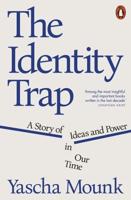Publisher's Synopsis
We are not born citizens, but must be educated and trained to be citizens. This is the central tenet of The New Citizenship, which builds on the participatory democratic vision of the 1960s. Arguing that civic effort must go beyond merely voting, Craig Rimmerman examines grassroots mobilization, community activism, service learning, and the Internet as potential tools for confronting the breakdown of civility in U.S. politics. }We are not born citizens, but must be educated and trained to be citizens. This is the central tenet of The New Citizenship, which builds on the participatory democratic vision of the 1960s. Arguing that civic effort must go beyond merely voting, Craig Rimmerman examines grassroots mobilization, community activism, service learning, and the Internet as potential tools for confronting the breakdown of civility in U.S. politics.At the heart of The New Citizenship a re the questions: Why do so many Americans fail to participate in their communities affairs? What role should the citizenry play in our political system?;In addressing these concerns, the text both evaluates the dilemma of participation, civility, and stability at a time when civic indifference is a national problem and outlines its sources, suggesting ways in which Americans can conquer their apathy toward government. Rimmerman also identifies alternative forms of participation (besides voting) seized upon by the citizenry to register discontent with its representative government. Considerable attention is devoted to the attitudes and values of college students as they approach their roles within the larger political system. }











